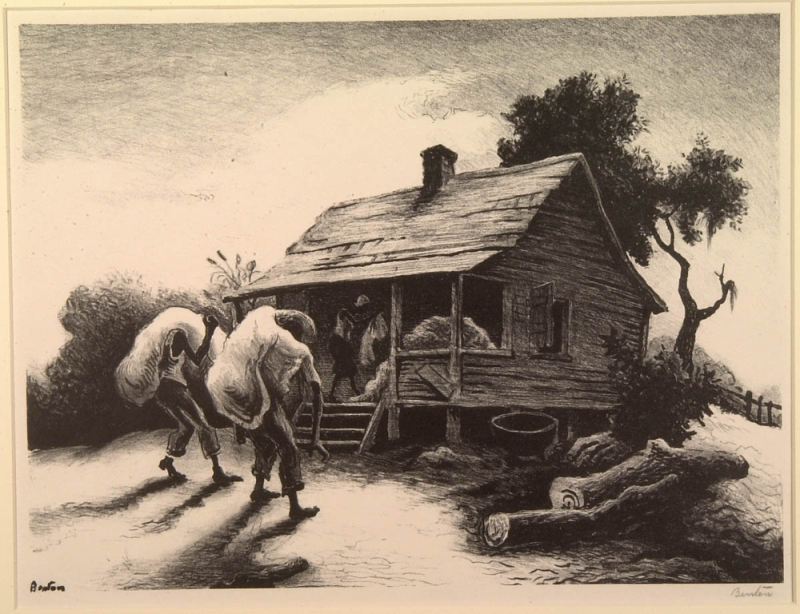Three years from the worst of COVID, most Americans have resumed “normal” lives, including work. But before too quickly declaring a new “return to normalcy,” we need to reckon with some of our opinion-makers, particularly the press and Hollywood.
The New York Times still wonders fairly regularly about whether Americans should go back to the office five days a week. (If you don’t live in the rarefied realms of the media, government, or academe, you probably didn’t think that was still a problem). I also recently learned from the movie previews that Tinseltown expects to release a series of films by BIPOC (black, indigenous, people of color) filmmakers about how we need to “understand work anew,” from a more “inclusive” perspective.
The Wall Street Journal has reported that more and more HR officials contend with parents calling on behalf of their Gen Z children, seemingly imagining that employers should act like fellow helicopter parents with whom they once shared playgrounds.
I fully accept that work/life balance is important and that the American workplace had become grossly imbalanced. And I do not deny that “productivity” and “efficiency” were masks for minimalizing, if not denying, basic workplace humanity. The fact that our most prominent employers put far more attention, publicity, and money into designing post-Dobbs “abortion benefits” packages for female employees, which exceed maternity policies many of them long fought, demonstrates the worst of consumer culture.
But I also ask: Has the pendulum swung too far in the other direction?
Let me bring the argument back to the grounds of theological anthropology, our religious vision of the human person. Pope St. John Paul II once said that if a human being wants to know who he is, where he came from, and why he’s here, he should return to the first pages of Genesis.
That’s very significant because our “Genesis heritage” is very much on the cultural chopping block today. The vision of humanity in Genesis 1 and 2 – a vision that informed Judaism and Christianity for millennia and, therefore, by extension, Western culture – is increasingly alien.
Witness five propositions of our “Genesis heritage” that, until recent decades, nobody doubted:
One: Man is a created bodily and spiritual being, neither just an animal nor an angel.
Two: What is created is good.
Three: Fertility, God’s first blessing (and command) to human persons, is not neutral, certainly not bad, not just convenient, but good.
Four: “Male and female He created them” reflects God’s Will for humanity; it’s not a “discriminatory gender binary.”
Five: Man is the zenith of material creation, rightly exercising responsible dominion over the rest of the created world.

These are central truths about the human person gleaned from Genesis, but not the only ones. In Laborem exercens, John Paul developed the notion of work, connecting it to Creation. God’s work of creation is not His alone: He made man, His image and likeness entrusted with dominion, to participate in that work.
Within the order of being and value God established, man carries forward the work of creation. That is why God made the world somewhat on the model of IKEA: assembly required. Do you need a chair or a bed? Use both the intellect and the maple God gave you to decide what you need and how to make it.
Work, therefore, is not a curse. Work is necessary for man’s normal development: he needs to be creative because he has been made a co-creator under God. Work, therefore, is part of man’s spirituality: he expresses himself morally through it.
This is not to romanticize rote and redundant labor or “make work.” But even in such monotonous toil, man expresses himself, at least as a responsible moral agent who puts in “an honest day’s work for an honest day’s pay,” or even “offers up” the grind because of his responsibilities towards others, e.g., spouse and children.
In this sense, work also has moral meaning. I stress this positive dimension – this responsibility – because people today also seem prone to thinking about work in “punishment” categories. The idea of “work requirements” for social benefits, for example, is wrongly seen as merely punitive. Work and the responsibility that flows from it are good things we should encourage. That there is a “grind” is also part of living in a sinful world. But even so, that fact reminds us (contrary to current assumptions) that work is not just about emotional self-fulfillment.
I fear that today’s tendency to downplay the importance of work, to spend more time talking about work than actually working, undermines the Genesis perspective that work is a good thing for people.
Work’s social character is another element of the “Genesis heritage” that is arguably under assault in today’s elite debates. Even God’s “work” in Creation is social. The Father speaks, and it is. But everything that is created is made “through and for” the Word, the Son. (Colossians 1:16) The Holy Spirit hovers over the chaos from the start. The fact that God appears to take counsel – “let us make man in our image and likeness” – already points to the Trinity. (Genesis 1:26) And God’s motive for creating the female as the suitable partner for the male likewise reflects human social nature: “it is not good for the man to be alone.” (Genesis 2:18)
We see from testing (we now believe things when they become numbers) that it has not been good for our children to be alone, “learning” from screens rather than in schools. There’s a similar problem with the retreat from the workplace: it is not good for grown-ups to spend all day in sweatpants, sitting alone in front of a computer, occasionally making contact via an online team meeting. Our Genesis heritage sees that as pathological, even if our social contract individualism likes it.
Contrary to Sartre, hell is not other people. We become more fully ourselves working with others – a deep perspective to recover this Labor Day.
__________















